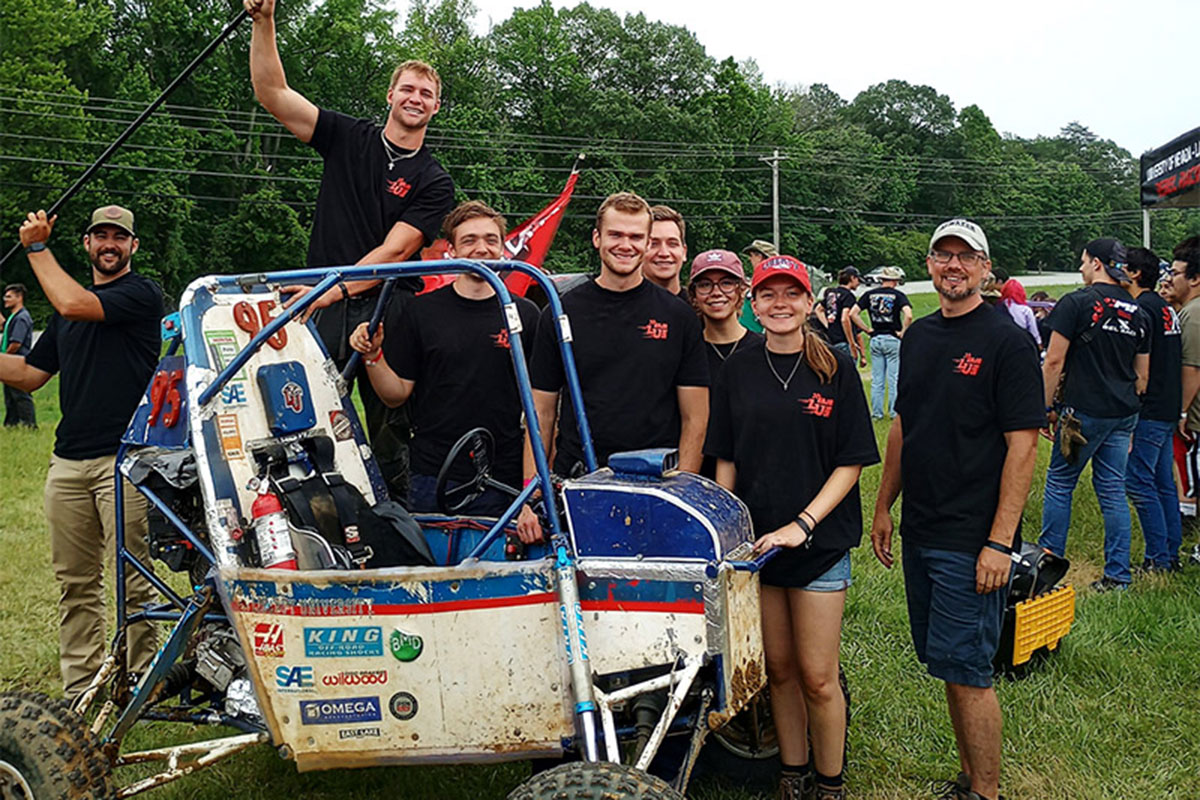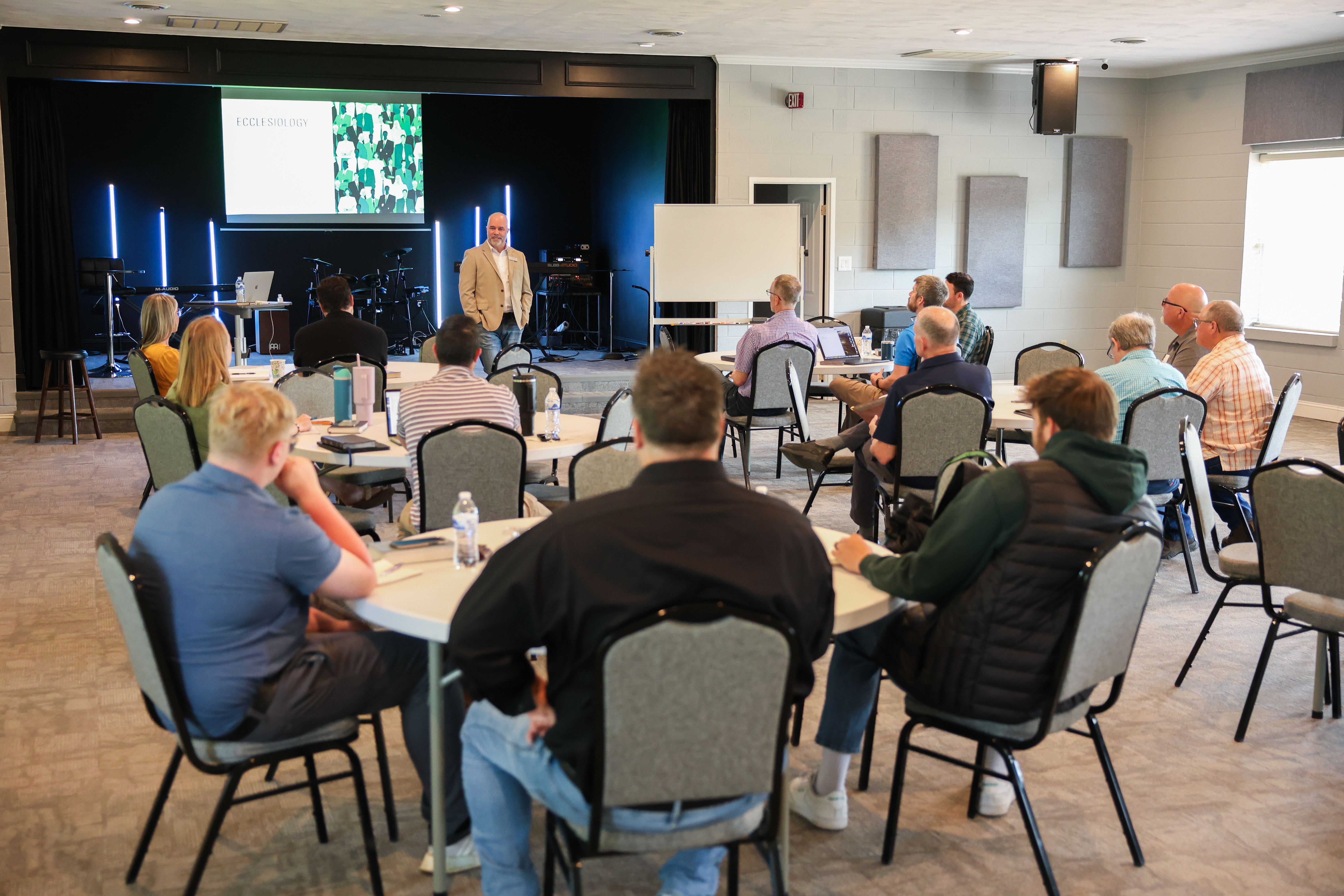Search News Archives
Filter News Articles
Additional Navigation
Liberty’s innovative model for remote simulator flight training gains FAA approval
May 21, 2020 : By Office of Communications & Public Engagement
In an unprecedented accomplishment in collegiate aviation, the Liberty University School of Aeronautics (SOA) has received Federal Aviation Administration (FAA) approval to provide remote simulator training in response to the COVID-19 limitations on face-to-face instruction.
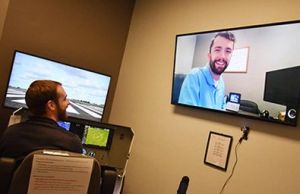
Rick Roof, interim dean, said that through existing technology, creativity, and the desire to serve their students, the SOA Simulator Team, faculty, and staff have worked together to provide remote training by instructors while students use the university’s Advanced Aviation Training Devices (AATDs) on campus. This flight training model is not currently utilized in any other collegiate aviation program.
“To the best of our knowledge, we don’t think anyone else has the ability to do remote simulation outside of the military — certainly not in the world of collegiate aviation,” Roof said.
He said the SOA worked with the FAA to secure approval for the unprecedented remote training system.
The school’s digital instructional delivery method allows instructors to completely monitor and control the simulator operating systems, see all of the AATD functions, and converse with the student virtually via remotely mounted cameras and commercially available video conference software.
Flight instructors are able to monitor student progress throughout their virtual training.
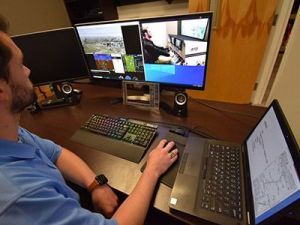
Though students must access the AATDs at the School of Aeronautics’ state of the art and newly constructed simulator complex on campus, the faculty member or flight instructor can be located almost anywhere — 6 feet away, next door, or even across the U.S — and can control the flight simulator through a secure network connection. With a remote camera, instructors can interact with the students and monitor each step of their progress.
“This enables instructors to train more effectively and efficiently through the flight simulators,” he said. “The interaction between instructor and student is preserved through this remote training because not only can they see what is happening with the simulator and with the flight, instructors can see what the student is doing every step of the way and provide any guidance the student may need.”
Kevin Martin, simulator department manager, said that as the LUSOA staff worked to address the challenge created by state social distancing restrictions, their innovation created not only solutions but also opportunities, such as the ability to use remote flight instructors.
“Our goal is to train students more efficiently, safer, and at a cheaper cost. And we do this through technology innovation and thinking outside of the box,” he said.
Students use state-of-the-art equipment at Liberty’s newly constructed simulator complex.
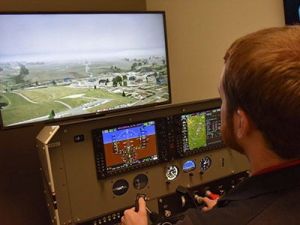
“This platform is really innovative in that it opens up opportunities for us to meet the demands of flight training while we continue to fulfill our mission of providing unmatched aviation education,” Roof added. “It also creates an environment where we can pull from a rich resource of instructors who are available not only in Lynchburg but anywhere around the world.”
Roof said the school has tried for years to find a way to use the talent that comes out of the airlines and other aviation professions.
“The problem is trying to take somebody who is retiring or is at the end of their career and have them relocate to Liberty,” he said. “But if you can have them teach via simulator part time from wherever they live, now you are starting to really draw on a much larger pool of potential instructors.”
Roof said the longer-term picture of flight training remains unclear and will continue to develop as COVID-19 restrictions are lifted or amended to accommodate collegiate flight training. In the meantime, he believes the remote simulator training model created by the School of Aeronautics team may change the way flight instruction is conducted in the future.
The SOA continues to create innovation in the aerospace education realm. The state-of-the-art simulator complex, completed in August 2019, provides the right set of tools and educational space to bring new ideas to fruition. This combination of technology, vision, and a uniquely gifted and talented team will continue to “Equip, Mentor, and Send Champions for Christ into the Aerospace Community.”
